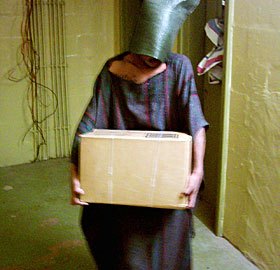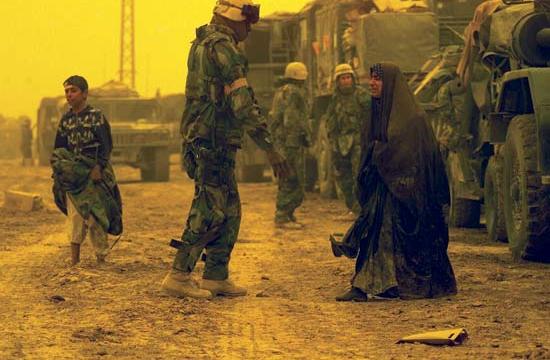Why We Should Investigate Detainee Abuse

Last week, Attorney General Eric Holder ordered a review of whether the interrogations of detainees held abroad have violated federal laws. President Obama has repeatedly said he would prefer not to investigate allegations of abuse under the Bush administration. And Sen. Kit Bond (R-MO) has already accused Holder of mounting a “witch hunt targeting the terror fighters who have kept us safe since 9/11.” But more is at stake here than taking revenge on political enemies.
Holder is probably right to say that legally he had little choice. It is not that, as Tom Malinowski argues, torture does not really work. It is that the interrogation techniques used were plainly illegal. In Hamdan v. Rumsfeld, the Supreme Court held that Geneva Convention rules requiring that prisoners not be subjected to cruel or degrading treatment apply to all detainees, even suspected terrorists. Likewise, the Convention Against Torture, which Ronald Reagan signed into law, requires the U.S. to prosecute anyone authorizing the infliction of “severe pain and suffering, whether physical or mental” for the purpose of obtaining information. And now, according to the New York Times, the Department of Justice’s Office of Professional Responsibility (OPR) has recommended that Holder reopen some detainee abuse cases, calling into the question the ethics of the original decision not to investigate.
Nevertheless, Holder limited the scope of the investigation at the outset, saying it would only look at cases in which interrogators went beyond the legal guidelines laid out by the Bush Justice Department. It may be reasonable not to focus on interrogators who had been told that what they were doing was legal. But Holder’s decision also means that the review will not consider whether it was legal to authorize those methods in the first place. Instead it treats controversial Justice Department memos—including one that was so widely criticized that the White House actually had to disavow it—as if they were settled law.
That’s why Glenn Greenwald argues that the effect will be to hold a few low-level officials accountable for the abuses, while letting the architects of the policy completely off the hook. That would be especially troubling in light of newly released government documents, which seem to show that the interrogations were closely directed by high-level officials at C.I.A. headquarters and the Department of Justice. Rep. John Conyers (D-MI) and Rep. Jerrold Nadler (D-NY) likewise argue that the probe should go further because “It would not be fair or just for frontline personnel to be held accountable while policymakers and lawyers escape scrutiny after creating and approving conditions where such abuses were all but inevitable to occur.”
It is easy to see why Obama would not want to look too closely at allegations of detainee abuse under the Bush administration. His advisors, as Jane Mayer tells us, are worried that even the appearance of partisan score-settling would deplete his political capital:
Basically, they regard their ability to hold the support of independent and conservative Democratic voters as essential politically for their very ambitious agenda. They dread any issue that could launch a divisive culture war. An exploration of Bush’s use of torture, seen from this perspective, is a potentially dangerous political distraction.
And since members of both parties played a role in authorizing the interrogation policy, neither has much stomach for a broader inquiry.
But at issue is not just the important question of whether we should be torturing suspected terrorists, but also the extent to which the President can make and interpret the laws he is supposed to enforce. Because if the executive branch can avoid prosecution simply by finding a lawyer who is willing to argue that what it is doing is legal, it can do more or less anything it wants. The question of whether to investigate detainee abuse is thus part of a larger fight over the degree to which the President should be subject to judicial and legislative oversight. What is at stake is ultimately not so much whether the people behind the abuse of detainees are punished, as it is whether to give Presidents the sole power to do the same thing in the future.





